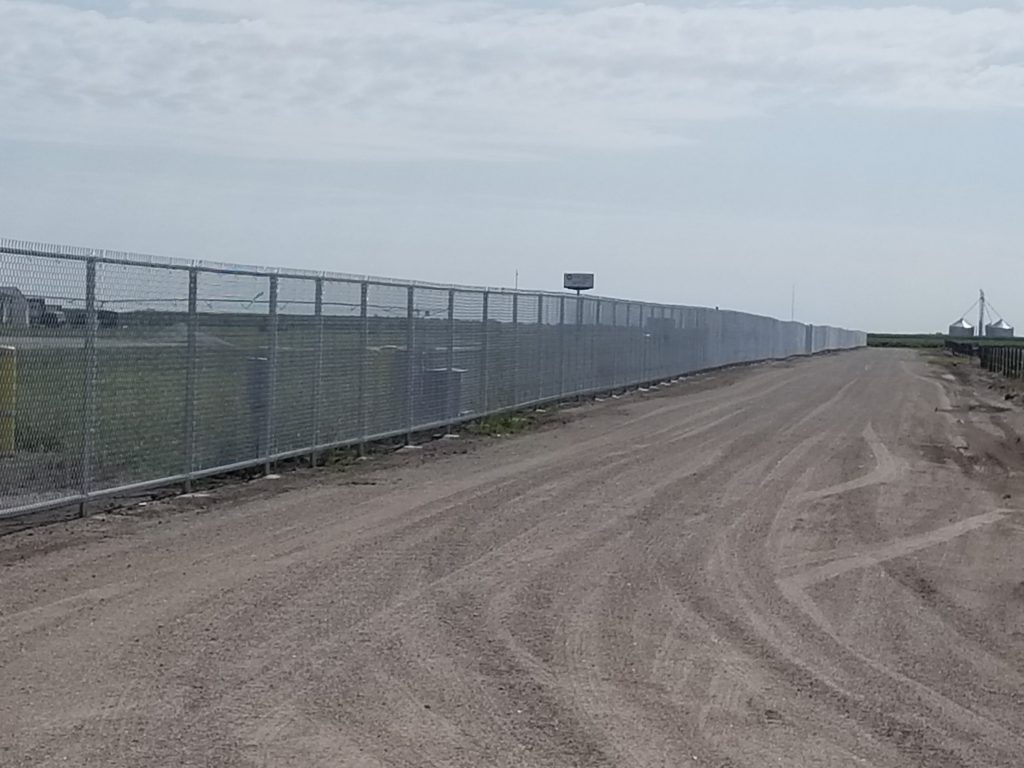How to properly prepare for your temporary fence installation in Madison?
With massive construction going on in Wisconsin, it is critical that temporary fences are used properly for workers and pedestrian safety. Having installed thousands of temporary construction fences in Madison and the surrounding Wisconsin communities, our crews have sat idle at many job sites while the contractor frantically tries to figure out where to put his construction fence. We have also gone back to just as many job sites and relocated the temporary site fence due to a lack of preparation. This is not how you want to start any new project. Before our crews to get to your site, please consider some easy preparation.
You should start with:
- Stake the location of your Madison temporary fence
- Locate your property line. We have watched hundreds of job site superintendents scratch their heads as they try to figure out where the property line is located.
- Be aware of any setbacks or easements. Any new construction project is going to involve relocating or connecting to utilities. Setting your temporary construction fence in the utility easement is a surefire way to guarantee to have to relocate it.
- Be aware of blocking visibility at intersections and City codes prohibiting obstructions at intersections. No one wants to watch a pile-up from their job site trailer. Blocking the visibility of oncoming traffic at an intersection can be a very dangerous act.
- Consider storage of onsite materials. Contractors will deliver truckloads of sand, blocks, brick, insulation, red iron, roofing, etc. You should consider the storage of all this material beyond the limits of construction. No one wants to pay to move materials around the site.
- Consider contractor access to the site for equipment and materials. Most materials delivered to the site will be via a flatbed tractor-trailer. These trucks are almost 85 feet long and require half that amount for a turning radius. Allow these deliveries room to access the site.
- Consider contractor parking. If you want contractors to show up to work, you have to allow them a place to park. When you force your workforce to park outside the site; you often block deliveries, etc. You will spend more time as a traffic cop than you may want to.
- Consider site conditions that may not allow Madison fencing to be kept tight to the ground. What good is a construction temporary site fence if you allow areas for others to crawl under the fence?
- Consider placing the fence next to any structures that would allow ease of climbing the fence. Installing your Madison temporary fence tight against transformers, signage, stored materials, etc. is inviting others to climb in or shuffle materials out.
- Stake the location of your Madison fence gates
- Consider codes and traffic laws regarding egress and ingress relative to intersections and busy streets. City officials study ingress and egress to any new project. This also applies to construction access. Installing a temporary construction gate in close proximity to an intersection is a recipe for an accident.
- Do you need jurisdictional approval for these access points? Temporary site access approval may be required during the permitting process. Don’t forget to ask.
- Consider equipment and material deliveries with large tractor-trailers. Large tractors and trailers cannot turn into construction sites where the gate is set tight to the street or right next to an intersection.
- Consider worker arrivals and departures. Hopefully, your subcontractors show up to work. When they do, don’t create a traffic jam by using the same gate for deliveries.
- Clear the site. Be sure the site is clear of any vegetation, equipment, materials, etc. A Madison temporary fence for construction is only useful if you make it visible and in line of sight of the general public. Install your fence in shoulder height weeds and you are allowing thieves the time and cover to access your fence.

